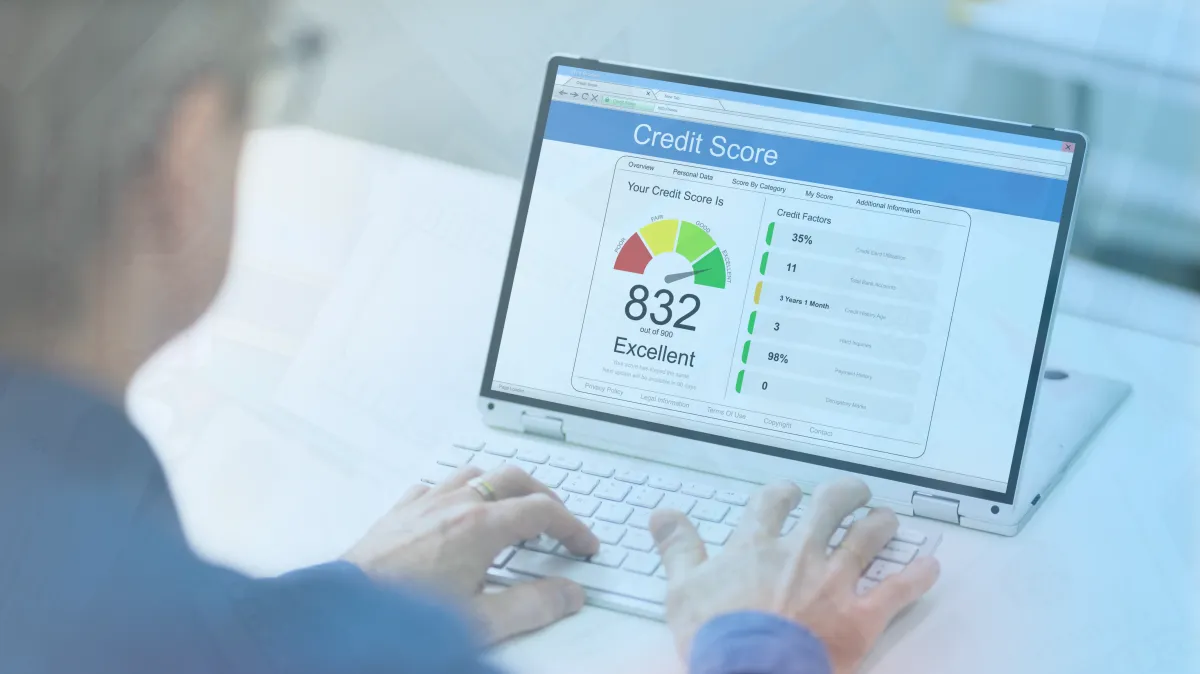The Hidden Costs of Having a Low Credit Score
Written by: RIC Staff
November 11, 2024
Topics: Save money with good credit

Life’s biggest milestones often come with a hefty price tag. Whether it’s buying a home, financing a car, or investing in education, these pivotal moments can cost more than necessary if you have a low credit score. MANY don’t realize just how expensive a bad credit score can be...
Not just in terms of interest rates but also the missed opportunities and additional fees across many areas of life.
The Real Price of Bad Credit:
How to Protect Your Wallet & Unlock More Opportunities.
What Is a Credit Score and Why Does It Matter?
A credit score is a numerical rating—ranging from 300 to 850—that tells lenders, landlords, and even employers how reliable you are when it comes to managing money.
A low credit score suggests a high financial risk, which may mean higher interest rates or even denied applications.
Here’s a quick breakdown of credit score categories:
1. Poor: Below 600
2. Fair: 600-649
3. Good: 650-699
4. Very Good: 700-749
5. Excellent: 750+
A low score can be costly and limiting. But by understanding the impact and taking small steps at a time, you can open doors to better financial options and save you thousands in the process for a new home, car loan, or investment.
Examples Of Bad Credit Being 'High Cost':
Homeownership Costs:
With a poor credit score, your mortgage interest rates can be significantly higher, potentially costing tens of thousands over the life of a loan.
For instance, while a borrower with a good credit score might secure a 5% mortgage rate, someone with a poor score might face 7-8%, adding substantial costs monthly and overall.
Renting Challenges: Low credit can make renting difficult or require larger deposits.
Many landlords now require high credit scores to qualify for leases, and eviction history or low scores can lead to automatic rejections.

Job Prospects: For positions involving finance or security, companies often check credit reports as part of the hiring process. A low score can impact hiring decisions, as it may signal financial instability.
Professional Trustworthiness: For careers that handle financial management, like real estate, bad credit may cast doubts about your reliability with finances, affecting career progression.
Other Types Of High Cost:
Loan Costs and Accessibility Car Loans:
Imagine two people with identical cars but different credit scores.
The person with a low score may face a rate as high as 10%, while someone with a higher score might secure a rate around 2%.
- Over time, the borrower with the low credit score ends up paying significantly more...
...sometimes even doubling their payments.
Credit Cards:
If you have a low credit score, expect higher interest rates on credit cards, which can quickly accumulate and eat into your budget.
A higher interest rate also limits your disposable income, impacting other areas of your financial life.

Insurance Rates:
Many insurance providers consider credit scores when calculating premiums. A low score often leads to higher rates, adding another financial burden.
Even mortgage insurance rates can be influenced by credit scores, so improving your credit can mean real savings across the board.
Utilities:
Providers often check credit scores to determine if a deposit is necessary. Those with low credit may have to pay significant upfront costs, increasing the cost of moving into a new home or apartment.
Understanding What Affects Your Credit Score
There Are 5 Key Factors That Influence Your Credit Score BIG TIME:
Payment History (35%): Paying bills on time is essential, as it’s the biggest factor impacting your score.
Amounts Owed (30%): Known as “credit utilization,” this measures how much of your available credit you’re using. Aim to keep the 'wants' under 30% of your credit balance.
Length of Credit History (15%): The longer your history of managing credit responsibly, the better.
Credit Mix (10%): Having different types of credit, like installment loans and credit cards, can positively impact your score.
New Credit (10%): Opening multiple accounts in a short period can lower your score, as it suggests financial instability.

There Are 5-Steps to Improve Your Credit Score...
Pay Bills on Time: Use autopay or reminders to ensure timely payments.
Lower Your Credit Utilization: Pay down balances and avoid maxing out cards.
Keep Old Accounts Open: Length of credit history matters—keep older accounts open when possible.
Diversify Your Credit Mix: A healthy mix of credit types can benefit your score but only open new accounts when necessary.
Limit Hard Inquiries: Each hard inquiry affects your score slightly, so be strategic when applying for new credit.
How a Better Credit Score Can Put
Cash Back in Your Pocket
A good credit score goes beyond just saving you money....
It can improve job prospects, reduce insurance rates, and increase your financial flexibility. For example, maintaining a high score can mean saving thousands on mortgage interest, auto loans, and credit card fees. Qualifying for better insurance rates and lower deposits on utilities.
Opening doors to financial opportunities—from competitive financing options to better career chances...
Imagine having extra disposable income each month because you’re not paying sky-high interest rates. That extra money can go towards investments, savings, starting a business, or even a dream vacation.
A good credit score is about maximizing your financial freedom.
Get Your Complimentary Session With A Credit Expert Today.
Life’s biggest milestones often come with a hefty price tag. Whether it’s buying a home, financing a car, or investing in education, these pivotal moments can cost more than necessary if you have a low credit score.
MANY don’t realize just how expensive a bad credit score can be...
Not just in terms of interest rates but also the missed opportunities and additional fees across many areas of life.
The Real Price of Bad Credit: How to Protect Your Wallet & Unlock More Opportunities.
What Is a Credit Score and Why Does It Matter?
A credit score is a numerical rating—ranging from 300 to 850—that tells lenders, landlords, and even employers how reliable you are when it comes to managing money.
A low credit score suggests a high financial risk, which may mean higher interest rates or even denied applications.
Here’s a quick breakdown of credit score categories:
1. Poor: Below 600
2. Fair: 600-649
3. Good: 650-699
4. Very Good: 700-749
5. Excellent: 750+
A low score can be costly and limiting. But by understanding the impact and taking small steps at a time, you can open doors to better financial options and save you thousands in the process for a new home, car loan, or investment.
Examples Of Bad Credit Being 'High Cost':
Homeownership Costs:
With a poor credit score, your mortgage interest rates can be significantly higher, potentially costing tens of thousands over the life of a loan.
For instance, while a borrower with a good credit score might secure a 5% mortgage rate, someone with a poor score might face 7-8%, adding substantial costs monthly and overall.
Renting Challenges: Low credit can make renting difficult or require larger deposits.
Many landlords now require high credit scores to qualify for leases, and eviction history or low scores can lead to automatic rejections.

Job Prospects: For positions involving finance or security, companies often check credit reports as part of the hiring process. A low score can impact hiring decisions, as it may signal financial instability.
Professional Trustworthiness: For careers that handle financial management, like real estate, bad credit may cast doubts about your reliability with finances, affecting career progression.
Other Types Of High Cost:
Loan Costs and Accessibility Car Loans:
Imagine two people with identical cars but different credit scores.
The person with a low score may face a rate as high as 10%, while someone with a higher score might secure a rate around 2%.
- Over time, the borrower with the low credit score ends up paying significantly more...
...sometimes even doubling their payments.
Credit Cards:
If you have a low credit score, expect higher interest rates on credit cards, which can quickly accumulate and eat into your budget.
A higher interest rate also limits your disposable income, impacting other areas of your financial life.

Insurance Rates:
Many insurance providers consider credit scores when calculating premiums. A low score often leads to higher rates, adding another financial burden.
Even mortgage insurance rates can be influenced by credit scores, so improving your credit can mean real savings across the board.
Utilities:
Providers often check credit scores to determine if a deposit is necessary. Those with low credit may have to pay significant upfront costs, increasing the cost of moving into a new home or apartment.
Understanding What Affects Your Credit Score
There Are 5 Key Factors That Influence Your Credit Score BIG TIME:
Payment History (35%): Paying bills on time is essential, as it’s the biggest factor impacting your score.
Amounts Owed (30%): Known as “credit utilization,” this measures how much of your available credit you’re using. Aim to keep the 'wants' under 30% of your credit balance.
Length of Credit History (15%): The longer your history of managing credit responsibly, the better.
Credit Mix (10%): Having different types of credit, like installment loans and credit cards, can positively impact your score.
New Credit (10%): Opening multiple accounts in a short period can lower your score, as it suggests financial instability.

There Are 5-Steps to Improve Your Credit Score...
Pay Bills on Time: Use autopay or reminders to ensure timely payments.
Lower Your Credit Utilization: Pay down balances and avoid maxing out cards.
Keep Old Accounts Open: Length of credit history matters—keep older accounts open when possible.
Diversify Your Credit Mix: A healthy mix of credit types can benefit your score but only open new accounts when necessary.
Limit Hard Inquiries: Each hard inquiry affects your score slightly, so be strategic when applying for new credit.
How a Better Credit Score Can Put Cash Back in Your Pocket
A good credit score goes beyond just saving you money....
It can improve job prospects, reduce insurance rates, and increase your financial flexibility. For example, maintaining a high score can mean saving thousands on mortgage interest, auto loans, and credit card fees. Qualifying for better insurance rates and lower deposits on utilities.
Opening doors to financial opportunities—from competitive financing options to better career chances...
Imagine having extra disposable income each month because you’re not paying sky-high interest rates. That extra money can go towards investments, savings, starting a business, or even a dream vacation.
A good credit score is about maximizing your financial freedom.
Get Your Complimentary Session With A Credit Expert Today.



